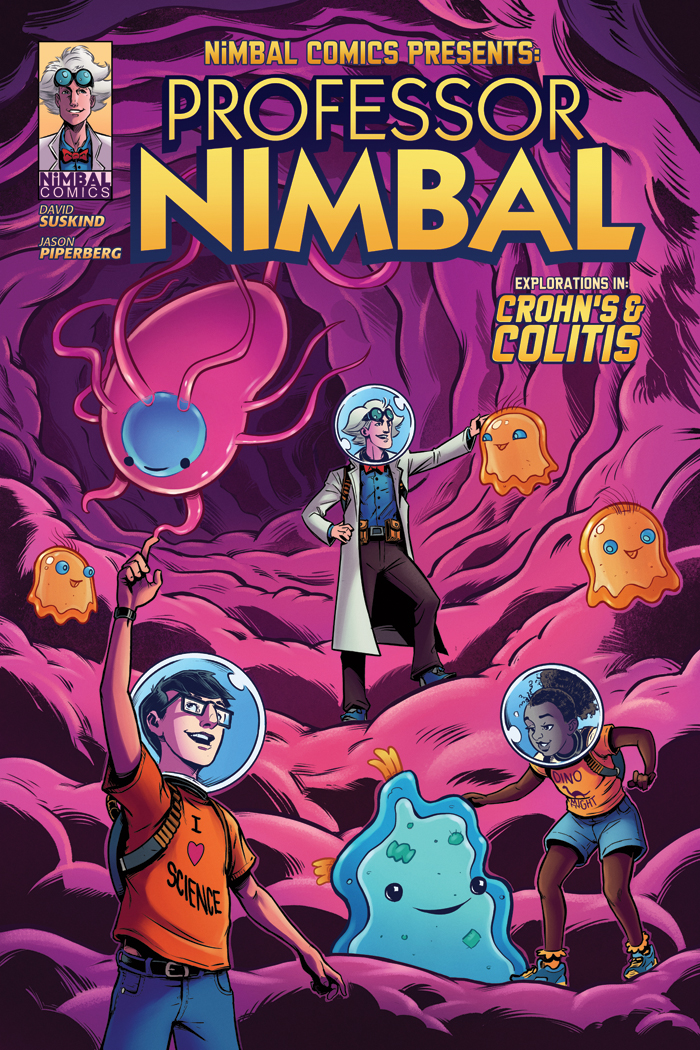Following dietary therapy can be challenging. The Specific Carbohydrate Diet has evolved over the years since Dr. Sydney Haas first reported on it. Since then we have learned much but there is still much more for us to learn. Below are foods that are allowed (legal) and foods that are not allowed (illegal) based off of Dr. Sydney Haas's initial description of the diet and Elaine Gottschal's Breaking the Vicious Cycle and our current research. In addition this food list includes up to date evidence based information on current research in foods.
A | B | C | D | E | F | G | H | I | J | K | L | M | N | O | P | Q | R | S | T | U | V | W | X | Y | Z
| Type of Food | SCD Approvals | Explanation | NiMBAL Research |
| Macadamia nuts | Legal | A tree nut originating from Australia. A significant source of thiamine and manganese. | Frequent nut consumption is associated with a healthy profile of inflammatory biomarkers. |
| Macadamia oil | Legal | With a smoke point of 390° F, macadamia oil is good for cooking at medium temperatures. Contains mostly oleic and palmitoleic acids. | Studies examining the effects of macadamia oil (specifically oleic and palmitoleic acids) on IBD have been inconclusive so far. |
| Magnesium citrate | Legal | (As a supplement ingredient). Used for constipation. | According to this study, magnesium citrate is safe to use for patients with IBD. |
| Magnesium stearate | Legal | (As a supplement ingredient). Commonly found in pharmaceuticals, cosmetics, baby formula, and hard candies. | No research has been done examining the effects of magnesium stearate on IBD. |
| Maltitol | Illegal | Maltitol, sorbitol, mannitol, and xylitol are all sugar alcohols and are not SCD legal. They fall under the category of indigestible carbs and sugars, and so allow companies to label things 'sugar free', even though they are providing nutrition to the bacteria that live in your digestive tract. | Consumption of sugar alcohols can lead to an overgrowth of bacteria, which can be harmful for patients with IBD. |
| Maltodextrin | Illegal | Maltodextrin is the worst of the small molecules of sugars. It is a very short chain of glucose molecules (derived from starch). The chances of digestion are practically nil. It therefore will feed bacteria. | Maltodextrin has been shown to inhibit anti-microbial defense mechanisms in the intestines in this study, which is particularly harmful for patients with IBD. |
| Manchego cheese | Legal | A sheep cheese with little to no lactose. | Consumption of cheese has been shown in this study to support healthy bacterial species and decrease harmful bacterial species. |
| Mangoes | Legal | A fruit rich in vitamin C. | A component of mangoes alleviates colitis through reducing pro-inflammatory signaling according to this animal study. |
| Mannitol | Illegal | Sorbitol, mannitol, and xylitol are all sugar alcohols and are not SCD legal. They fall under the category of indigestible carbs and sugars, and so allow companies to label things 'sugar free', even though they are providing nutrition to the bacteria that live in your digestive tract. | Consumption of sugar alcohols can lead to an overgrowth of bacteria, which can be harmful for patients with IBD. |
| Maple syrup | Illegal | Maple syrup is a disaccharide. |
Maple syrup contains inulin, which acts as a prebiotic and thereby increases Lactobacillus in the gut, which can cause an overgrowth of bacteria detrimental to patients with IBD. |
| Margarine | Illegal | A butter substitute comprised of a mixture of vegetable and animal fats. | Consumption of margarine correlated with increased incidence of UC in this dietary study. |
| Marshmallow | Illegal | It is a mucilaginous herb. Mucilaginous herbs are loaded with starch. This starch is food for the pathogens that the SCD is designed to starve out. | While some studies have found mucilaginous foods to be beneficial for IBD, starch has been shown to aggravate IBD symptoms. |
| Mastic gum | Illegal | A supplemental version of chewing gum. | According to this study, mastic gum helped induce remission of CD. |
| Mead | Illegal | IIf homemade with honey and yeast, mead is legal. Commercial mead is likely to have sugar added and is therefore illegal. | It has been shown that alcohol causes inflammation, overgrowth of bacteria, and intestinal permeability in this review. |
| Meat | Legal | All fresh or frozen meats with no additives or processing are legal including beef, lamb, pork, liver, kidney, oxtail and tongue. | While meat is a great food for gaining weight, an epidemiological study found that high meat consumption increases the risk of IBD. |
| Meat (canned) | Illegal | Canned meat can contain illegal additives. Here is a good list of possible additives. | An epidemiological study found that high meat consumption increases the risk of IBD. |
| Meat (processed) | Illegal | Most have additives such as starch, lactose and sugar e.g. hot dogs, turkey loaf, spiced ham, bologna, smoked meats. | Starch has been shown to aggravate IBD symptoms. |
| Melatonin | Illegal | A supplement taken to induce sleep. | According to this review, melatonin is beneficial for IBD and reduces inflammation. |
| Melon | Legal | All melon types are allowed. | For example, bitter melon has anti-inflammatory and antioxidant properties beneficial for IBD according to this study. |
| Milk | Illegal | Fluid milk of any kind is not permitted due to its lactose. | A recent meta-analysis found inconclusive evidence linking lactose to IBD. |
| Millet | Illegal | A type of grain that does not contain gluten. | Millet contains antinutrients such as oxalates and phytates, which block the absorption of minerals needed by IBD patients. |
| Miracle Noodles | Illegal |
Made of glucomannan, a water-soluble polysaccharide. Glucomannan is obtained from the root of an Asian plant called konjac (full name Amorphophallus konjac). It has been nicknamed the elephant yam, and called konjaku, konnyaku, or the konnyaku potato. |
While konjac supplementation caused an increase in anti-inflammatory bacterial species in this animal model, the prebiotic potential of this food may be too much for patients with IBD. |
| Miso | Illegal | Fermented soybean paste common in Japanese cuisine. A potent probiotic. | Soy is rich in isoflavones, which are associated with increased risk for UC according to this study. |
| Molasses | Illegal | A sticky sugar made from sugarcane or sugar beets. Contains sucrose. | Complex carbohydrates act as food for bacteria, leading to excessive fermentation and intestinal permeability. |
| Molo-cure | Illegal | The main constituent of Molo-cure is aloe. Aloe is not SCD compliant as it contains mucilaginous polysaccharides and increases the release of tumor necrosis factor, which is associated with IBD inflammation and increased immune stimulation. | Oral aloe vera taken for 4 weeks produced a clinical response more often than placebo in active UC. Despite this single study would recommend avoiding aloe vera until further research. |
| Monterey jack cheese | Legal | May be used occasionally. An aged cheese so little to no lactose. | Consumption of cheese has been shown in this study to support healthy bacterial species and decrease harmful bacterial species. |
| Mozzarella cheese | Illegal | Can be made from sheep, cow, goat, or buffalo milk. A soft cheese. | No research has been conducted examining the effects of Mozzarella cheese on IBD. |
| MSG | Illegal | Monosodium glutamate. Regardless of whether it is SCD legal or not, we should all try to avoid it. MSG can be a potent neurotoxin. | MSG increased inflammation in the intestine of an animal model, and decreased the overall health of the intestine as well. |
| Mucilaginous herbs | Illegal | Slimy, mucilaginous substances are often prescribed as some think the "coating" properties are helpful to the intestines. They aren't. We who have compromised guts cannot digest this stuff, but our bugs can have quite a party on it. | While some studies have found mucilaginous foods to be beneficial for IBD, starch has been shown to aggravate IBD symptoms. |
| Mucilaginous polysaccharides | Illegal | Slimy, mucilaginous substances are often prescribed as some think the "coating" properties are helpful to the intestines. They aren't. We who have compromised guts cannot digest this stuff, but our bugs can have quite a party on it. | While some studies have found mucilaginous foods to be beneficial for IBD, starch has been shown to aggravate IBD symptoms. |
| Muenster cheese | Legal | May be used occasionally. Originally from the United States, muenster cheese has little to no lactose content. | Consumption of cheese has been shown in this study to support healthy bacterial species and decrease harmful bacterial species. |
| Mung beans | Illegal | A legume rich in folate. | No studies have been conducted examining the effect of mung beans on IBD. However, mung beans contain anti-inflammatory polyphenols according to this review. |
| Mushrooms | Legal | An edible fungus of many varieties. | Mushrooms are anti-inflammatory, prevent IBD-associated cancer, and contribute to the health of the intestinal mucosa according to this review. |
| Mustard (plain) | Legal | Mustard is legal if it doesn't contain illegal ingredients; read the labels carefully. | Mustard contains sulforaphane, which has been shown in this review to inhibit pro-inflammatory signaling and protects against cancer. |



